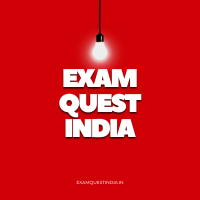
India, a nation with a rich history of struggle and sacrifice, observes Martyrs’ Day, also known as Shaheed Diwas, on multiple dates throughout the year. This might seem confusing, but it reflects the numerous heroes who gave their lives for the country’s freedom and integrity. While January 30th and March 23rd are the most prominently observed Martyrs’ Days, it’s crucial to understand the significance of each date and the diverse reasons for honoring these brave souls.
January 30th: A Day of Remembrance for the Father of the Nation
January 30th is observed as Martyrs’ Day to commemorate the assassination of Mahatma Gandhi, the father of the nation. On this day in 1948, Nathuram Godse, a Hindu nationalist, shot and killed Gandhi during his evening prayers at Birla House in New Delhi.
Gandhi’s assassination was a profound shock to the nation, which had only recently gained independence. It highlighted the deep-seated communal tensions that still plagued the country and the violent opposition to Gandhi’s ideals of peace and non-violence.
The government of India officially declared January 30th as a national holiday in 1949 to honor Gandhi’s legacy and his immense contributions to India’s independence movement. This day serves as a solemn reminder of the values of non-violence, peace, and justice that Gandhi championed throughout his life.
How is January 30th observed?
- National Level Events: The President, Vice President, Prime Minister, and other high-ranking officials gather at Rajghat, Gandhi’s memorial in New Delhi, to pay their respects. The armed forces personnel sound the Last Post, and a two-minute silence is observed nationwide at 11 AM in memory of Gandhi and other martyrs.
- Local Remembrance: Memorial services are held at statues and monuments of freedom fighters across the country.
- Educational Activities: Schools organize special assemblies with plays, poems, and speeches highlighting the sacrifices of martyrs.
- Cultural Events: Various cultural programs promote patriotism through music, dance, and art.
- Community Initiatives: Many communities engage in social service activities like blood donation camps and tree plantation drives in honor of the martyrs.
March 23rd: Honoring the Revolutionary Trio
March 23rd is another significant date observed as Martyrs’ Day. It marks the death anniversary of three revolutionary freedom fighters: Bhagat Singh, Shivaram Rajguru, and Sukhdev Thapar. These young men were hanged by the British colonial rulers on this day in 1931 in Lahore (now in Pakistan).
Bhagat Singh, Rajguru, and Sukhdev were members of the Hindustan Socialist Republican Association (HSRA), a revolutionary organization that sought to overthrow British rule through armed struggle. They were convicted for their involvement in the assassination of John Saunders, a British police officer, in 1928.
Their courage and sacrifice at such a young age made them iconic figures of resistance and inspired generations of Indians to fight for freedom. March 23rd serves as a reminder of their unwavering commitment to the nation and their defiance against oppressive rule.
Why is March 23rd significant?
- Revolutionary Ideals: Bhagat Singh and his comrades advocated for a complete social and economic revolution, going beyond mere political independence. They sought to address the root causes of inequality and injustice in Indian society.
- Youth Inspiration: The youth of India were particularly inspired by their boldness and idealism. Their sacrifice fueled the fire of the independence movement and motivated many to join the struggle.
- Symbol of Resistance: The hanging of these three young revolutionaries became a powerful symbol of the brutality of the British Raj and the urgent need for freedom.
Other Martyrs’ Days in India
Apart from January 30th and March 23rd, several other days are observed as Martyrs’ Day in different parts of India, each commemorating specific events or individuals who sacrificed their lives for the nation. Some notable examples include:
- February 15th: This day is observed as Martyrs’ Day in Bihar to remember 34 freedom fighters who were killed by police firing in Tarapur in 1932.
- October 21st: Police Commemoration Day is observed nationwide to pay tribute to police personnel who died in the line of duty.
- November 17th: Odisha observes this day as Martyrs’ Day to honor Lala Lajpat Rai, a prominent freedom fighter and leader.
- Various regional days: Several states and regions observe their own Martyrs’ Days to commemorate local heroes and events that contributed to the struggle for independence.
The Significance of Martyrs’ Day
Martyrs’ Day is not just a day of mourning; it’s an occasion for reflection and rededication. It reminds us of the sacrifices made by our forefathers and the values they stood for. Here are some key reasons why Martyrs’ Day is observed:
- Honoring Sacrifices: It pays tribute to those who sacrificed their lives for the nation’s freedom and integrity.
- Remembering History: It helps us to remember and learn from our history, ensuring that we never forget the struggles and sacrifices that led to our independence.
- Inspiring Patriotism: It instills a sense of patriotism and national pride among citizens.
- Promoting Unity: It brings people together to celebrate their shared history and values, fostering a sense of unity and brotherhood.
- Motivating Future Generations: It inspires future generations to uphold the values of courage, sacrifice, and service to the nation.
Conclusion
In conclusion, both January 30th and March 23rd are significant days observed as Martyrs’ Day in India. While January 30th commemorates the assassination of Mahatma Gandhi and his ideals of non-violence, March 23rd honors the sacrifice of Bhagat Singh, Rajguru, and Sukhdev, who represent revolutionary fervor and youthful courage.
The existence of multiple Martyrs’ Days underscores the diverse nature of India’s struggle for independence and the numerous heroes who contributed to it. Each day serves as a reminder of the sacrifices made and the values that we must continue to uphold to build a strong and prosperous nation.
It’s important to remember that Martyrs’ Day is not just about the past; it’s about the present and the future. It’s about honoring the legacy of our martyrs by working towards a better India, one that is free from violence, injustice, and inequality.
Discover more from ExamQuestIndia: The Best Exam Prep Platform in India
Subscribe to get the latest posts sent to your email.



